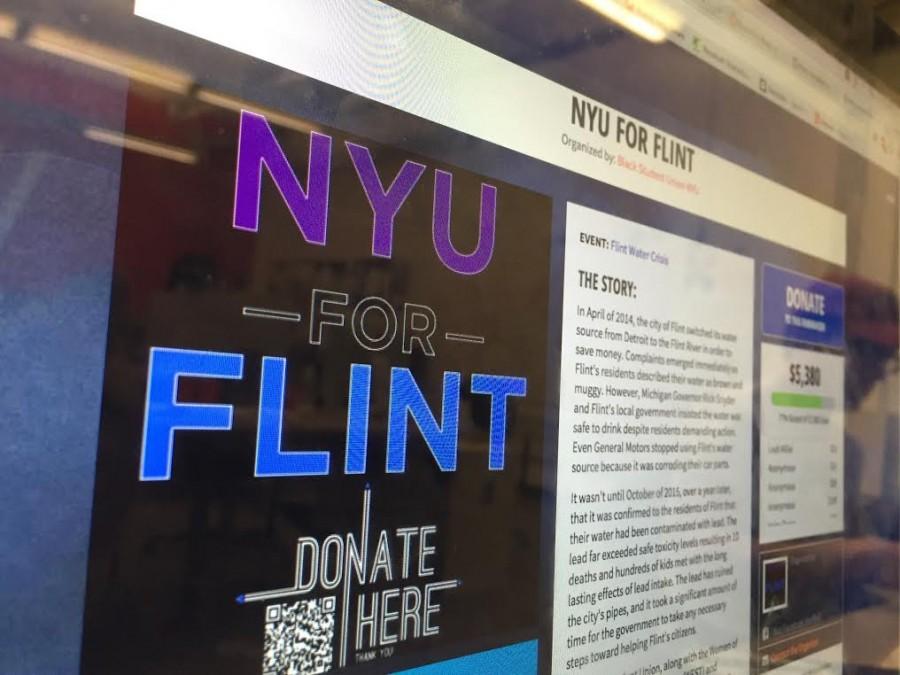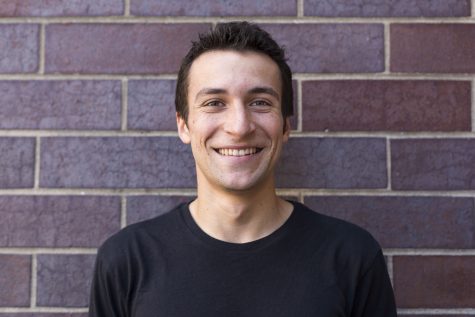BSU and NYU Divest Discuss Where Race and Environmental Issues Intersect at Flint
The Black Students Union’s NYU for Flint fundraiser has raised more than $5,000 in the last month.
March 3, 2016
At the close of the NYU for Flint fundraising campaign, the Black Student Union and NYU Divest hosted a panel Wednesday evening to discuss how communities can learn about the intersection of racial and environmental issues that led to the water crisis in Flint, Michigan
Over the last few weeks, BSU, Gentlemen of Quality and Women of Excellence, Strength and Tenacity raised funds to provide bottled water for the residents of Flint, whose water supply had been contaminated with lead after the city switched water providers.
Speakers of the panel included Dean Saranillio, professor of social and cultural analysis, Priya Mulgaonkar, policy organizer at the NYC Environmental Justice Alliance, members of NYU Divest and Amani Dow, a member of the Black Students Union at NYU.
CAS junior Angel Parker coordinated both the Black Student Union’s NYU for Flint Campaign and the Beyond Flint panel.
“It’s a good opportunity for people to learn more about Flint, how situations like this actually aren’t rare in marginalized communities, and ways we can get involved,” Parker said.
Speakers from NYU Divest and the Black Student Union weighed in on both the environmental and racial perspectives. Saranillo had additional insight as he described the crisis in Flint as a problem of environmental racism.
Saranillo brought up the problem of the GM Motors factory near Flint. The water from the Flint river was corroding their cars, and the dealers requested that the government let them switch back to the Detroit water source. They were allowed to do so, but the citizens who were actually drinking the water were not given this choice.
“The government was concerned primarily about getting the economy back on track,” Saranillo said. “It did not take into consideration the people that the economy is supposedly supposed to benefit. And that’s absolutely racist.”
A major concern the panel addressed was how long the government took to react, despite requests for the government to step in. The panel focused a large part of its discussion on how residents of a community can raise concern to their government during crises like Flint’s.
Community empowerment and interaction with the policy makers would prevent the government from making top-down decisions that don’t take into account the needs of the community. Mulgaonkar discussed a process that the NYC Environmental Justice Alliance uses to empower the community.
“We tap into voices of community, amplify them to make sure that within the government structure that we have, where there isn’t a large pot of money, we make sure that it is being allocated to communities that know what they need and making sure the communities get that,” Mulgaonkar said.
NYU’s Flint Campaign has raised over $5,000 for the cause but Angel Parker is hopeful that the end of the campaign will not end support for Flint at NYU.
“We hope that the NYU community keeps the tragic story of Flint and its citizens alike as the community will continue to suffer even after the cameras turn off,” Parker said.
Email Olivia Roos at [email protected].
















































































































































